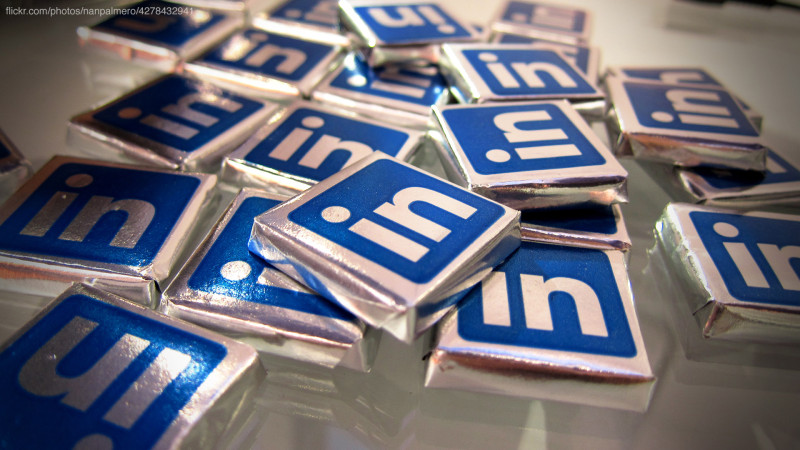
Since its launch in 2003, LinkedIn has completely revolutionized professional networking. I often wonder how recruiters, in particular, ever survived without it.
Besides offering the chance to connect with your colleagues and wider network, it provided a new array of choices for anyone looking for a job, a new employee or relevant content. With a growing active user base came monetization, and in 2008, the company began testing its first ads product as a way to drive additional revenue.
The company’s latest update for advertisers, its April release of Matched Audiences, is welcome news to marketers who have been struggling to drive direct response from their efforts on LinkedIn.
Here we look at this recent update in more detail, particularly the retargeting capabilities, and their potential impact. (You can learn more about advanced email match strategies with Matched Audiences in this post by AJ Wilcox.)
What’s new?
LinkedIn has offered a variety of targeting options for some time now, such as job title or seniority level. But there was no scope for re-engaging with existing customers or known users. Matched Audiences is a belated move to what many would think of as industry-standard retargeting capabilities. Better late than never!
There are three new tools to choose from:
- Website Retargeting — Re-engage with visitors to your website simply by building lists of target audiences from your existing LinkedIn pixel.
- Contact Targeting — Securely upload a CSV list of email addresses to directly target existing contacts on the platform.
- Account Targeting — Upload a CSV list of company names to reach decision-makers at your target companies.
The first two will be familiar to anyone already running paid social activity on other platforms, as they’ve long been offered by Facebook and Twitter, and slightly more recently by Pinterest and Snapchat. And if you do have experience running social retargeting, you’ll know just how effective it can be.

What can we expect the potential impact to be?
Simply put, retargeting works. Users are fickle and indecisive, and no matter what the vertical, a gentle reminder is often needed to drive most of them to complete your desired action. And without the tools to give people that gentle reminder, performance is bound to suffer.
Looking at a cross-section of clients we run at Merkle|Periscopix, my employer, we see without exception that retargeting outperforms prospecting when looking at any metric — which won’t be a surprise to anyone who understands the basic sales funnel.
Across Facebook and Instagram, standard retargeting has a post-click return on ad spend (ROAS) almost seven times higher than that of prospecting. Interestingly, CTR for remarketing is 15 percent higher than prospecting, so not such a dramatic difference. But its significantly higher conversion rate is what’s driving that strong return.

So it seems that while it may be relatively easy to capture people’s attention on social, retargeting is particularly vital for moving people down the funnel and getting results.
The need for retargeting is further amplified when we consider the fact that many of the B2B products that are advertised on LinkedIn are high-value items. Choosing a new cloud hosting or CRM provider is a decision rarely made after just one visit to a single website; decision-makers are likely to shop around, and it could be months before they make a choice.
Retargeting could be the difference between option A and option B. For that reason, I think the addition of these targeting options to LinkedIn’s ads suite will be huge.
Who should be taking advantage of this?
LinkedIn certainly isn’t for everyone, but some advertisers may either see their LinkedIn campaigns improve because of these changes or finally be able to justify advertising on the platform at all, thanks to this move towards driving direct response.
The platform is perfect for high-value B2B products and services like SaaS (software as a service) or cloud hosting, because although CPCs may be higher on LinkedIn than on some of its counterparts, the revenue just one deal of that nature would drive could make it all worth it. Conversely, those high advertising costs are something to bear in mind if you’re offering a product that means smaller deal sizes, as it may mean the platform isn’t profitable for you overall.
And, of course, we have the group that, if my inbox is anything to go by, appears to make up the vast majority of LinkedIn’s user base: recruiters. People tend to spend more time on LinkedIn if they’re actually looking for a job, so you’re already targeting a pretty engaged audience. That, in addition to the highly specific targeting available, makes LinkedIn the perfect platform to hunt for candidates.
So if you’ve hesitated to use LinkedIn in the past based on a lack of direct response or poor returns, now may be the time to give it a try.
Some opinions expressed in this article may be those of a guest author and not necessarily Marketing Land. Staff authors are listed here.
About The Author

Popular Stories
